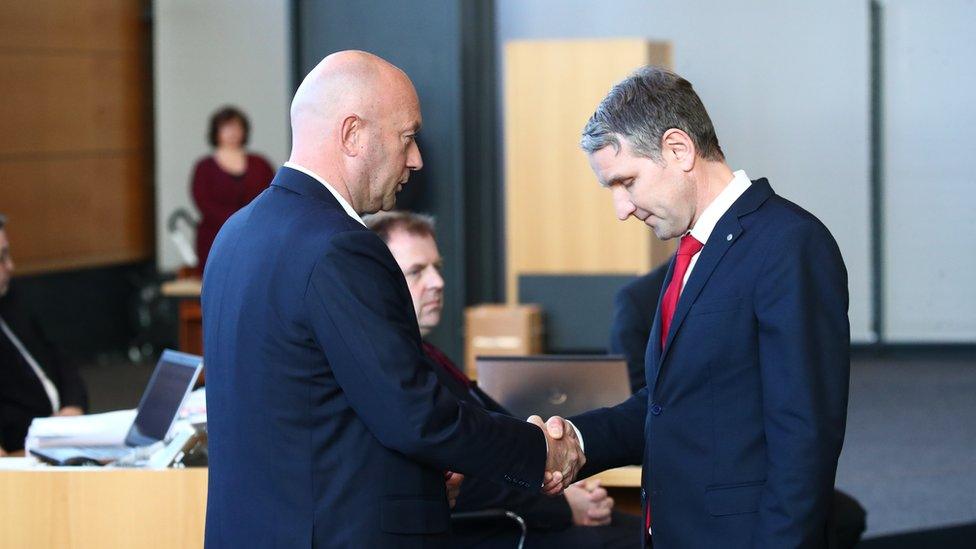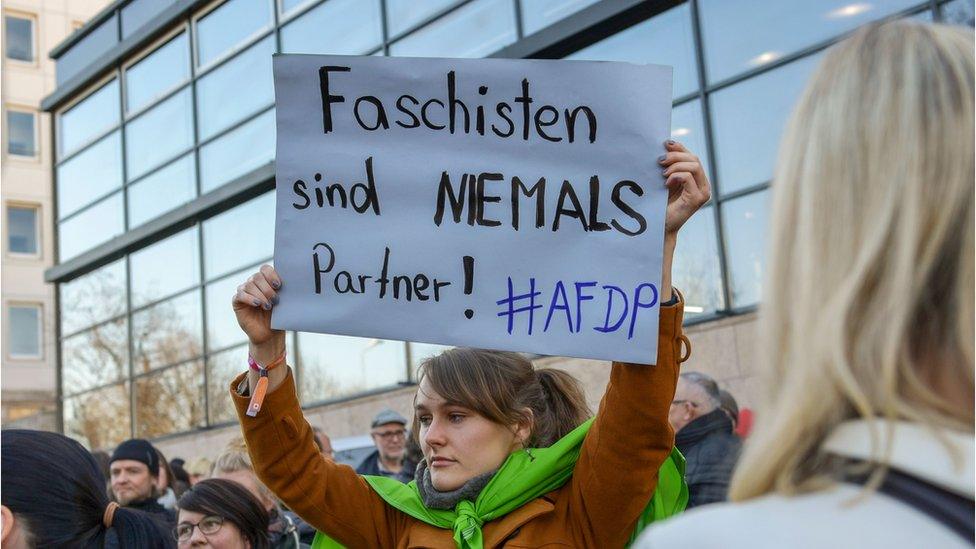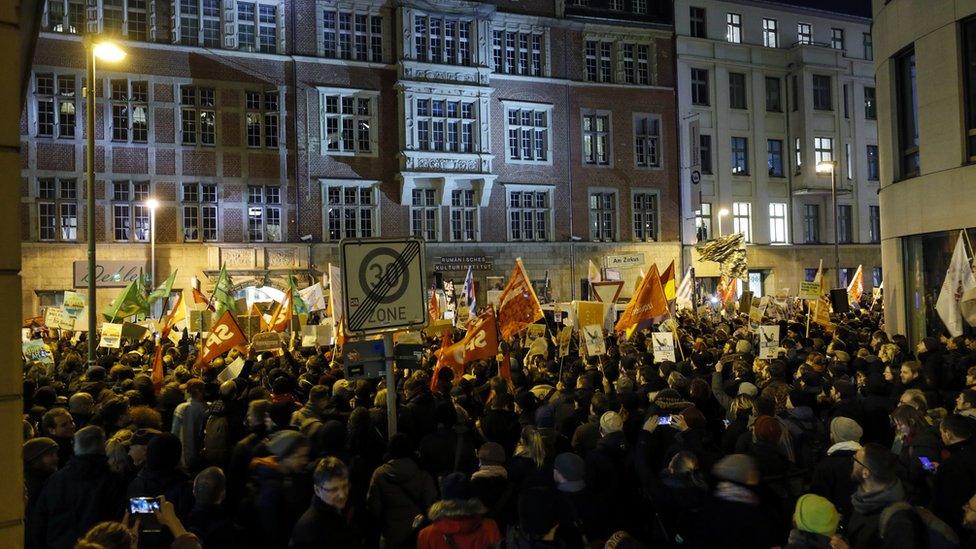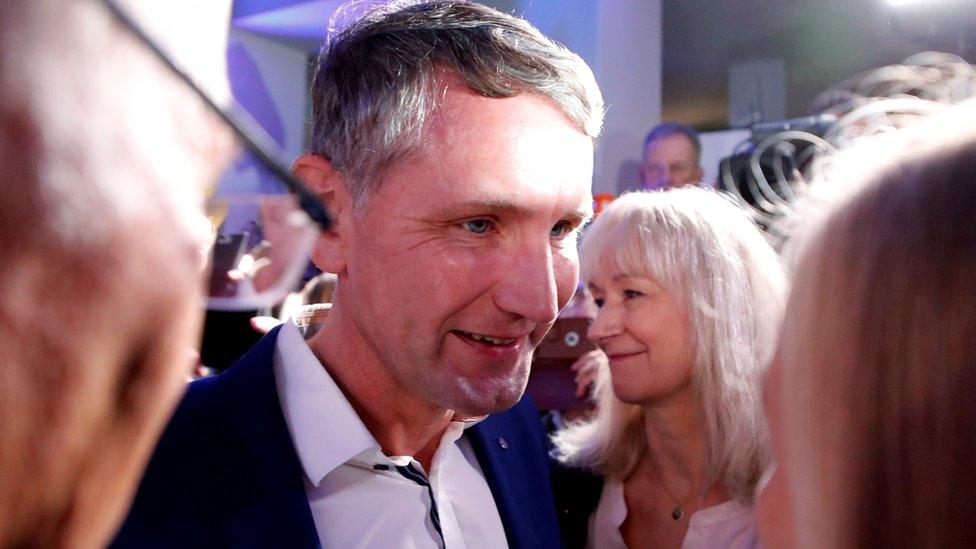Germany AfD: Outrage as far right helps oust Thuringia PM Ramelow
- Published

There was shock as the new state premier, Thomas Kemmerich (left), shook hands with local AfD leader Björn Höcke
Protests have broken out in the eastern German state of Thuringia after the far-right AfD party helped oust state premier Bodo Ramelow, replacing him with another candidate.
Mr Ramelow's Die Linke (Left) won Thuringia's state elections in October and agreed a coalition deal on Tuesday.
But, in what is being described as an earthquake in German politics, he then lost the vote for state premier.
The AfD unexpectedly threw its weight behind another party's candidate.
Why the controversy?
For mainstream parties to collaborate with the AfD is considered a taboo, and both Chancellor Angela Merkel's local CDU and the liberal FDP ended up on the same side, backing the liberal candidate, Thomas Kemmerich.
No state premier has ever taken office before with the aid of the AfD.
The anti-immigration party is the biggest opposition force in Germany's national parliament, the Bundestag. Thuringia is one of its heartlands and the regional AfD is seen as even more extreme there, because it is led by Björn Höcke, one of its most controversial figures.

A protester in Erfurt held a banner stating that "fascists are never partners"
Mr Höcke sparked an outcry when he condemned the decision to place the Holocaust memorial in the heart of Berlin, describing it as a "memorial of shame".
Critics were appalled that the two centre-right parties had apparently made a pact with a party that holds extreme views on immigration, freedom of speech and the press.
Mr Kemmerich's FDP had barely scraped into the local parliament in Erfurt with just 5% of the vote last October, and his success in the vote in parliament came as a shock to Bodo Ramelow's supporters.
Allow X content?
This article contains content provided by X. We ask for your permission before anything is loaded, as they may be using cookies and other technologies. You may want to read X’s cookie policy, external and privacy policy, external before accepting. To view this content choose ‘accept and continue’.

What reaction has there been?
Mr Kemmerich told the parliament in Erfurt that he was against all forms of fascism - "I'm anti-AfD and anti-Höcke" - but local reports said he was interrupted by shouts of "charlatan" and "hypocrite".
Over 1,000 protesters took to the streets of Erfurt and other demonstrations were held in Thuringia's other main cities - Weimar, Jena and Gera -, public broadcaster MDR reported.

A protest broke out outside the FDP's main office in Berlin
Hundreds of people protested in front of Mr Kemmerich's party headquarters in Berlin, and the hashtag #Dammbruch (dam burst) was trending on Wednesday evening in Germany.
Mr Ramelow himself said what had happened was a "disgusting charade". He pointed out that it was in Thuringia 90 years ago that the first National Socialist government in Germany had been elected.
There was also anger from the CDU's national leader, Annegret Kramp-Karrenbauer, who called for new elections, describing what had happened as "a bad day for Thuringia, a bad day for Germany".
The leader of Mr Kemmerich's own party, Christian Lindner, ruled out co-operating with the far right.
- Published28 October 2019
